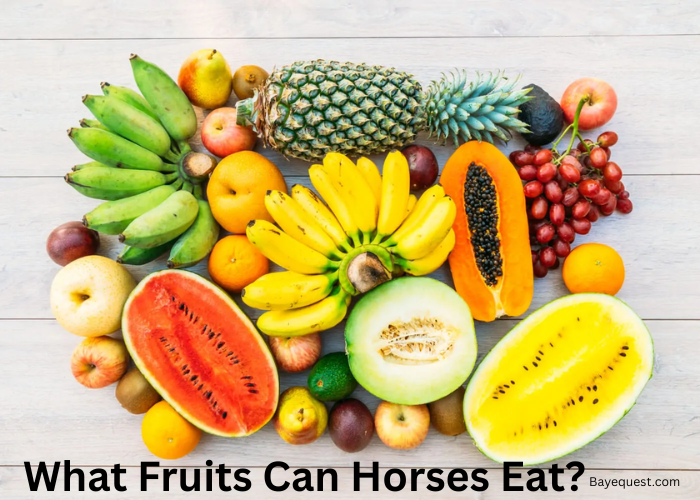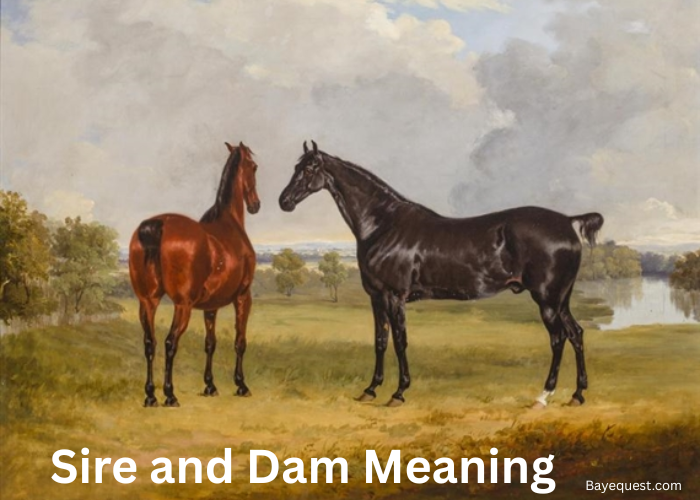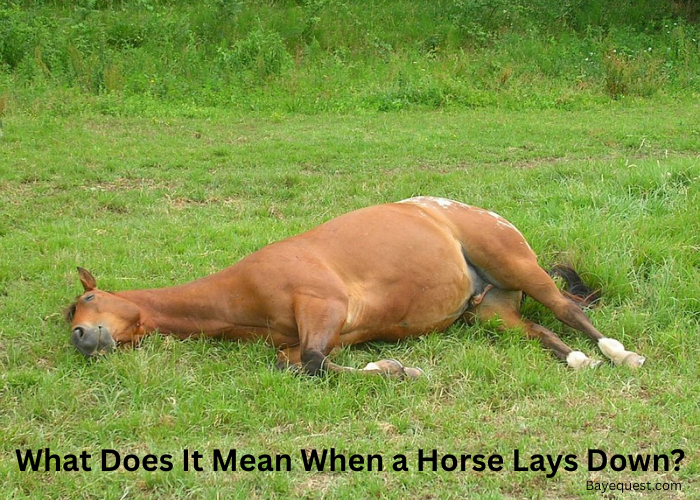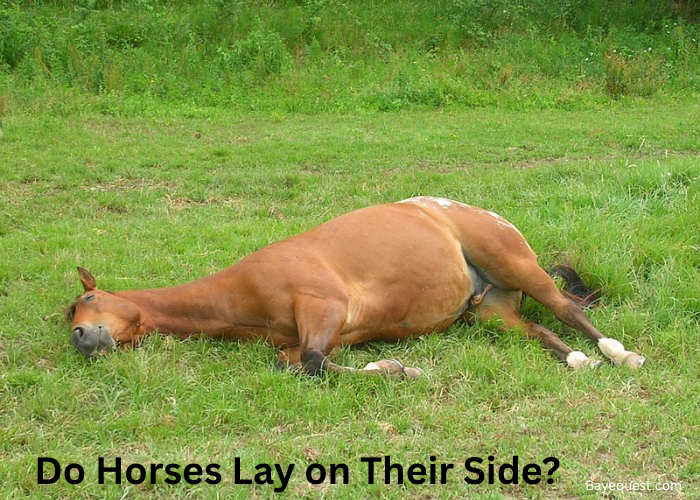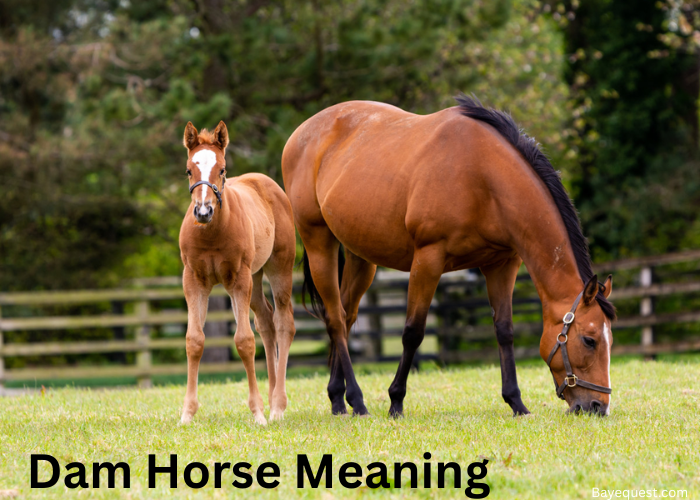If there’s one thing horses love almost as much as grazing, it’s a tasty treat. And fruits often top that list.
Unfortunately, while fruits can add valuable nutrients, hydration, and variety to a horse’s diet, not every fruit is suitable for them. Some contain too much sugar, others can cause digestive upset, and a few are downright toxic.
In this guide, we’ll explore the best fruits for horses, explain how and when to serve them, and identify which ones to avoid completely. Let’s jump in.
What Fruits Can Horses Eat? Key Takeaway
Horses can safely eat a variety of fruits as occasional treats fed in moderation. But the best fruits for horses are apples, bananas, pears, watermelon, strawberries, and blueberries. These fruits provide vitamins, hydration, and natural sweetness. Avoid toxic or unsafe fruits like avocados, cherries with pits, and anything moldy or spoiled.
Why Fruits Can Be Good (and Sometimes Bad) for Horses
Feeding fruit to horses might seem like an innocent act of kindness. But it’s actually a small science in itself.
They are a wonderful addition to a horse’s diet, full of vitamins, minerals, and hydration. But fruits can also cause problems when consumed in excess.
Understanding both sides helps you make informed, balanced feeding choices.
The Good: Natural Nutrition and Variety
Fruits are packed with essential nutrients that support your horse’s overall health. Apples and bananas, for example, are rich in potassium, fiber, and vitamin C, which aid digestion and muscle function.
Meanwhile, berries and citrus fruits deliver antioxidants that help reduce inflammation and support the immune system.
And, during hot weather, juicy fruits like watermelon or pears can even help with hydration thanks to their high water content.
Beyond nutrition, fruits also add an enjoyable variety to your horse’s daily feed routine. Just like humans, horses appreciate a bit of flavor diversity.
Offering safe fruits can make training sessions or bonding moments more rewarding.
The Bad: Sugar and Digestive Sensitivity
Despite their benefits, fruits are naturally high in sugar. Yet, horses’ digestive systems aren’t built to handle large amounts of it.
Too much sugar can disrupt the gut’s delicate microbial balance, leading to bloating, gas, and even colic. Over time, excessive sugar intake may contribute to obesity, insulin resistance, or laminitis.
Some fruits also contain toxic compounds or pits that pose choking hazards. Avocados, for instance, contain persin, a toxin harmful to horses.
Meanwhile, fruits like cherries, peaches, and plums have hard pits that must be removed before feeding.
The Key: Moderation and Awareness
When fed correctly, fruits can boost nutrition, strengthen your bond with your horse, and make treat time fun. But knowing where to draw the line, and which fruits to skip altogether, is what keeps your horse both happy and healthy.

Safe Fruits Horses Can Eat
Below are some of the best fruits horses can eat, grouped by type for easy reference. Each of these can be enjoyed as a treat, provided you serve them in moderation and prepare them safely.
Common Favorites
Apples
Apples are the most popular fruit for horses. And for good reason. They’re rich in fiber, vitamin C, and potassium, which help maintain digestive and muscle health.
The sweet, crunchy texture makes them perfect for rewarding your horse after training or adding variety to its diet.
Bananas
Bananas are another favorite among horses. They’re loaded with potassium, vitamin B6, and magnesium; nutrients that support muscle recovery and nerve function.
Many horses also enjoy eating the peel, which is safe if washed thoroughly and free of pesticides.
Pears
Pears are mild, juicy, and gentle on a horse’s stomach, and an excellent source of fiber and vitamin K. Their high water content also makes them a refreshing treat on hot days.
Slice clean pears into thin wedges to make chewing easier, and feed only a few pieces at a time.
Berries and Small Fruits
Strawberries
These bright red berries are rich in antioxidants, vitamin C, and fiber. They support the immune system and add a burst of natural flavor that most horses adore.
Above all, strawberries are soft and easy to chew, making them a safe choice for horses of all ages.
Blueberries
Blueberries are a powerhouse of antioxidants that help fight inflammation and boost cell health. They also contain beneficial plant compounds that support cardiovascular wellness in horses.
A handful or two makes for a great low-calorie treat.
Raspberries and Blackberries
Both raspberries and blackberries are safe for horses and provide a strong dose of antioxidants, vitamin C, and manganese.
Their slightly tart flavor is a hit with many horses, especially when mixed with other fruits.
Grapes
Grapes are safe for horses in small amounts, despite their known toxicity in dogs. They offer hydration, fiber, and a touch of sweetness.
However, grapes are high in sugar. So, stick to a handful or less, and always wash them well before feeding.
Tropical Fruits
Watermelon
Watermelon is a summertime favorite. It’s 90% water, making it perfect for hydration, and it provides vitamins A and C.
Both the flesh and the rind (in moderation) are safe for horses.
Pineapple
Pineapple delivers vitamin C, manganese, and natural enzymes that aid digestion. Its tropical sweetness makes it an occasional treat that horses enjoy.
Because it’s quite acidic, offer it sparingly. Just a few chunks are enough.
Related read: Nutritional Value of Pineapples for Horses.
Mango
Rich in vitamin A, potassium, and beta-carotene, mango can be a tasty addition to your horse’s treat rotation.
The flesh is safe and nutritious, but the pit must be removed as it poses a choking hazard.
Papaya
Papaya is known for its digestive enzymes and vitamin-rich flesh. Also, it supports gut health and eases mild digestive discomfort.
The flavor is mild and often well accepted by horses, especially when mixed with other fruits in small quantities.
Coconut
Coconut meat is safe and rich in healthy fats, though it should be given in moderation. The oil content helps maintain a shiny coat and healthy skin.
Always remove the shell and cut the inner white flesh into small pieces.

Melons and Citrus (Feed with Care)
Cantaloupe and Honeydew
Both cantaloupe and honeydew melons are hydrating and rich in vitamin C and beta-carotene. Furthermore, the soft texture makes them easy to chew, even for older horses.
Because they’re sweet, a few cubes are enough for a treat.
Oranges and Tangerines
Citrus fruits like oranges and tangerines can be fed in very small amounts. They’re full of vitamin C and antioxidants, but also contain acid that may irritate sensitive digestive systems.
Feed only one or two peeled segments at a time, occasionally.
Kiwi
Kiwis are another fun treat rich in vitamin C and fiber. Many horses enjoy their tangy sweetness. But feed kiwis sparingly, as their acidity can cause mild stomach upset if overdone.
Unique But Safe in Small Amounts
Cherries
Cherries are safe only when fully pitted. The flesh is rich in antioxidants, but the pits contain cyanide compounds.
Feed only the soft inner fruit, and limit the serving to a few cherries at a time to avoid sugar overload.
Plums
Plums are similar to cherries. The flesh contains vitamin C and fiber, making it a sweet but safe occasional treat when pitted.
Avoid feeding unripe plums, which can be sour and hard to digest.
Apricots
Apricots are full of vitamins A and E, which support healthy skin and vision. Also, their soft texture makes them easy to chew, even for older horses.
Always remove the pit, and offer just one or two apricot halves per serving.
Peaches
Juicy and aromatic, peaches are another safe fruit once the pit is removed. They contain antioxidants and beta-carotene that promote immune health.
Wash thoroughly to remove any pesticide residues, and feed sliced in small portions to prevent choking.
See also: How to Safely Feed Peaches to Horses.
Fruits Horses Should NEVER Eat
Unfortunately, certain fruits can cause serious harm, or even be fatal, to horses. Some contain natural toxins that interfere with the digestive or nervous system.
Meanwhile, others can cause blockages or colic. Knowing which fruits to avoid is just as important as knowing which ones to feed.
Below are the most common fruits that your horse should never eat under any circumstances.
Avocados
Avocados are one of the most dangerous fruits for horses. They contain a toxin called persin, found in the skin, flesh, pit, and even the leaves of the avocado plant.
Persin can cause colic, difficulty breathing, irregular heartbeat, and, in severe cases, death.
Tomatoes
Tomatoes belong to the nightshade family, which also includes potatoes and eggplants. The green parts of the plant, as well as unripe tomatoes, contain solanine, a chemical that affects the nervous system.
Ingestion may lead to digestive upset, loss of coordination, or difficulty swallowing.
Rhubarb
Rhubarb may look harmless, but it’s highly dangerous to horses. The leaves, and to a lesser extent, the stalks, contain oxalic acid, which binds to calcium in the body and can cause kidney failure.
Even small bites of rhubarb leaves can cause severe poisoning.
Persimmons
Persimmons might seem like a sweet treat. But they’re deceptively dangerous.
The fruit’s seeds and fibrous material can form sticky masses in a horse’s intestines, leading to impaction colic.
Additionally, unripe persimmons contain tannins that can irritate the digestive tract.
Unripe or Moldy Fruits
Even safe fruits like apples, pears, or bananas can become hazardous if they’re moldy, overripe, or fermented. Eating moldy or rotting fruit can cause gas, diarrhea, and colic.
Fruit Pits and Large Seeds
Fruit pits and large seeds are often hazardous. For example, pits from cherries, peaches, apricots, and plums contain cyanogenic glycosides, which release cyanide when chewed or digested.
Ingesting these can result in respiratory distress or poisoning.
Other Risky Fruits to Be Cautious With
- Citrus fruits in large amounts: The acidity can irritate the digestive system.
- Dried fruits: These are heavily concentrated in sugar and often preserved with sulfites, which can upset the stomach.
- Exotic or unfamiliar fruits: Always check with your veterinarian before trying anything new.
Related read: What Vegetables Can Horses Not Eat?
How Much Fruit Can Horses Eat?
Horses have highly sensitive digestive systems designed for constant grazing on grass and hay, not for handling large quantities of sugar or starch.
That’s why fruit should always be viewed as an occasional treat and not a dietary staple. Here’s what to consider:
General Portion Guidelines
As a rule of thumb, a horse should receive no more than one to two cups of chopped fruit per day, given only a few times a week. For smaller breeds or ponies, half that amount is plenty.
When giving treats, it’s best to mix things up. For example, consider a few apple slices one day and a couple of banana chunks the next.
This keeps your horse interested while preventing overconsumption of any single fruit.
Frequency and Timing
The best time to feed fruit is after your horse has eaten its regular hay or grain. This helps reduce the risk of digestive upset, as the stomach isn’t empty.
Avoid feeding fruit right before or after intense exercise, since digestion slows down during strenuous activity.
Offering fruit two to three times per week is ideal for maintaining balance and avoiding sugar overload.
Consider Your Horse’s Individual Needs
Not all horses metabolize sugar the same way. Those with conditions such as insulin resistance, equine metabolic syndrome (EMS), or laminitis should have fruit either severely limited or completely avoided.
For overweight horses, opt for lower-sugar fruits like berries or pears, and serve them in tiny amounts.
Always consult your veterinarian before introducing new treats, especially if your horse has dietary restrictions.
Monitor for Overfeeding Signs
Too much fruit can quickly lead to soft manure, bloating, or mild colic. Watch for early warning signs like decreased appetite, unusual droppings, or lethargy after feeding.
These indicate that you may be offering too much sugar or too much fruit at once.
If you notice these symptoms, stop feeding fruit immediately and return to a roughage-based diet until digestion stabilizes.

How to Prepare Fruits for Horses
Preparation matters just as much as fruit choice when it comes to keeping your horse safe. The goal is to make fruit easy to chew, easy to digest, and completely free of harmful residues or pits.
Here’s how to prepare your fruit treats in four simple steps;
Step 1: Wash Thoroughly to Remove Pesticides and Dirt
Commercially grown fruits often carry pesticide residues, dust, or wax coatings that can irritate a horse’s digestive system.
A simple rinse under clean water or a brief soak in a solution of water and vinegar can remove most contaminants.
Step 2: Remove Pits, Seeds, and Cores
Many fruits contain inedible or toxic components such as pits and seeds. Apple and pear seeds, for example, contain trace amounts of cyanide, while pits from peaches, cherries, and plums can be both poisonous and a choking hazard.
Always core apples and pears, and remove pits completely from stone fruits before slicing and feeding them.
Step 3: Cut into Bite-Sized Pieces
Horses don’t chew their food as thoroughly as humans do, and large chunks of fruit can easily cause choking.
Slicing eliminates the risk. Softer fruits like bananas or watermelon can be cut into wedges, while harder fruits like apples should be thinly sliced or diced into small cubes.
Step 4: Store Fruits Correctly
Freshness matters too. Keep fruits in a cool, dry place or refrigerate them to prevent mold. If you prep fruit in advance, store it in sealed containers and serve it within a day or two.
But avoid freezing fruits with high water content (like watermelon or strawberries) unless you’re making frozen treats for hot weather. Otherwise, they’ll become mushy when thawed.
Signs Your Horse Might Be Reacting Poorly to a Fruit
Every horse is unique. Even when you feed the right fruits in small amounts, some may react differently. Knowing what to watch for helps you act quickly and keep your horse safe.
Signs of Digestive Upset
The most common reaction to too much fruit is digestive disturbance. Symptoms often include loose manure, excessive gas, or a bloated belly.
These signs usually mean your horse’s gut microbes are struggling to process the extra sugar or fiber.
If your horse passes unusually soft or watery droppings after eating fruit, cut back immediately and return to a hay-based diet until things normalize.
Colic Symptoms
In more severe cases, overfeeding fruit can contribute to colic, a painful digestive condition that requires prompt attention.
Warning signs include pawing at the ground, looking repeatedly at the flanks, rolling, sweating, or restlessness. If your horse shows any of these signs, call your veterinarian immediately.
Allergic or Sensitivity Reactions
Though rare, some horses can be allergic or sensitive to certain fruits. Mild symptoms may include hives, skin irritation, coughing, or nasal discharge after eating a particular treat.
Keep track of what you feed, especially when introducing new fruits. If your horse reacts negatively to that fruit, discontinue it and note it for future reference.
Changes in Appetite or Behavior
A horse that suddenly refuses hay, appears lethargic, or seems “off” after trying new fruits could be experiencing subtle digestive discomfort. Loss of appetite, dullness, or decreased energy often signals an internal imbalance.
When this happens, remove all treats from the diet for several days, ensure plenty of clean water, and observe closely. If symptoms persist, seek veterinary advice.
When to Call the Vet
Any sign of colic, prolonged diarrhea, or swelling around the mouth or throat warrants an immediate call to your vet.
While most fruit-related issues are mild, early intervention prevents minor problems from escalating.
FAQs
Can horses eat fruit every day?
Yes, horses can eat fruit every day. But fruits should be treated as supplements or rewards, not as a daily staple. Otherwise, the horse may experience digestive system upsets or weight gain. A few slices of apple, a banana, or a handful of berries is usually plenty.
Can foals eat fruit?
Yes, foals can eat fruit after they are fully weaned and their digestive systems have matured. Introduce fruits very slowly and in tiny amounts. Most importantly, consult your vet before adding items to a foal’s diet to ensure it’s appropriate for their age and development.
Can horses eat dried fruit?
Yes, horses can eat dried fruit. But it should be given sparingly and only if it’s unsweetened and preservative-free. If you choose natural, additive-free options like plain dried apples or banana chips, offer just a few pieces at a time. That said, it’s best to prioritize fresh fruit for your horses.
Can horses eat citrus or tropical fruit?
Yes, horses can eat citrus and tropical fruits like oranges, pineapples, and mangoes in small amounts if they are prepared safely. Peel them, remove any pits or cores, and offer just a few bites as an occasional treat to avoid stomach upsets.
Conclusion
Fruits can be a fun, nutritious, and refreshing addition to your horse’s diet. But moderation and mindfulness are key.
While apples, bananas, pears, watermelon, and berries are among the safest and most popular choices, every horse is different. Some may tolerate certain fruits better than others.
Always start small and monitor your horse to find out what works best.




